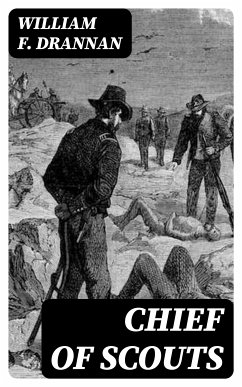
Chief of Scouts (eBook, ePUB)

PAYBACK Punkte
0 °P sammeln!
In "Chief of Scouts," William F. Drannan presents a riveting account of life on the American frontier, weaving a rich tapestry of narratives that reflect the complexities of post-Civil War America. Written in a captivating, personal style, the book takes the form of a detailed memoir enriched with vivid descriptions of the landscapes and cultures Drannan encountered as he served as a scout for the U.S. Army. The literary context of Drannan's work lies within the larger tradition of frontier literature, where the themes of adventure, survival, and the interplay between Native Americans and sett...
In "Chief of Scouts," William F. Drannan presents a riveting account of life on the American frontier, weaving a rich tapestry of narratives that reflect the complexities of post-Civil War America. Written in a captivating, personal style, the book takes the form of a detailed memoir enriched with vivid descriptions of the landscapes and cultures Drannan encountered as he served as a scout for the U.S. Army. The literary context of Drannan's work lies within the larger tradition of frontier literature, where the themes of adventure, survival, and the interplay between Native Americans and settlers are foreseen with a unique blend of reverence and critique. William F. Drannan was not merely a passive observer of events; born in 1830, he experienced the tumultuous realities of life in the West firsthand, shaping his compelling narrative. His background as a scout and experiences in the military provided a firsthand, authentic perspective that permeates this work, effectively capturing the ethos of a transformative era in American history. Drannan's duality as both an advocate and critic further complicates the narratives of heroism and conquest, inviting deeper inquiry into the moral ambiguities of his time. "Chief of Scouts" is an essential read for anyone interested in American history, frontier life, and the nuanced experiences of those who lived through it. Drannan's engaging prose not only entertains but also educates the reader on the significant cultural dynamics of the 19th century. This book serves as a gateway to a profound understanding of the American West and its multifaceted history.
Dieser Download kann aus rechtlichen Gründen nur mit Rechnungsadresse in A, B, BG, CY, CZ, D, DK, EW, E, FIN, F, GR, HR, H, IRL, I, LT, L, LR, M, NL, PL, P, R, S, SLO, SK ausgeliefert werden.













